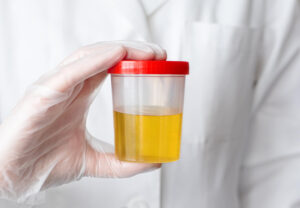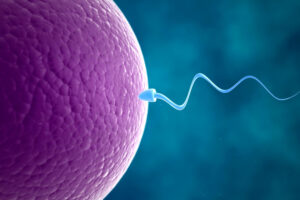Low AMH levels have become a common concern for many women trying to conceive. AMH, or Anti-Müllerian Hormone, is a key indicator of a woman’s ovarian reserve — essentially, the number of eggs remaining in her ovaries. Understanding what low AMH levels mean for fertility, the causes behind it, symptoms to watch out for, and possible treatment options can empower women to make informed decisions on their journey to motherhood. In this article, we will explore low AMH levels, addressing a crucial question: Can you get pregnant with low AMH levels? We’ll also explore causes, symptoms and effective treatments.
What is AMH and Why Does it Matter?
AMH is a hormone produced by granulosa cells in ovarian follicles. It reflects the quantity of the remaining egg supply in the ovaries. Doctors use AMH testing to assess ovarian reserve, which helps estimate a woman’s fertility potential.
- Normal AMH levels usually range from 1.0 to 4.0 ng/mL.
- Low AMH levels: Typically below 1.0 ng/mL, indicating reduced ovarian reserve.
Low AMH levels do not provide information about egg quality but signal that the number of eggs is diminishing, which can impact the chances of conception.
Can You Get Pregnant with Low AMH Levels?
The short answer is yes but with some challenges. Low AMH levels indicate a low quantity of eggs, but pregnancy is still possible if the eggs are healthy. Many women with low AMH conceive naturally or with the help of fertility treatments.
Key Points:
- Low AMH is not infertility but a marker of reduced ovarian reserve.
- Women with low AMH can still ovulate regularly and conceive.
- The chance of pregnancy may be lower and may decline faster than in women with normal AMH.
- Fertility treatments like IVF (In Vitro Fertilization) can improve the chances of pregnancy.
For example, a 35-year-old woman with an AMH level of 0.5 ng/mL can still conceive naturally, but it may take longer, and fertility monitoring may be needed.
Causes of Low AMH Levels
Several factors can lead to low AMH levels. Understanding these can help in addressing the underlying causes:
1. Age
- The most common cause of low AMH levels is ageing.
- AMH levels decline naturally after age 30 and drop significantly after 35.
- By the early 40s, AMH levels may be very low or undetectable.
2. Ovarian Surgery or Damage
- Previous surgeries on the ovaries, such as cyst removal, can reduce ovarian reserve.
- Ovarian damage from infections or endometriosis also lowers AMH.
3. Genetic Conditions
- Conditions like Premature Ovarian Insufficiency (POI) or Turner Syndrome can cause early depletion of ovarian follicles.
4. Chemotherapy or Radiation Therapy
- Cancer treatments can severely affect ovarian function and reduce AMH levels.
5. Lifestyle Factors
- Smoking, obesity, and environmental toxins may contribute to lowered ovarian reserve.

Symptoms Associated with Low AMH Levels
Low AMH levels themselves usually do not cause symptoms. However, because they indicate a lower ovarian reserve, symptoms may arise from related hormonal changes or fertility issues:
- Irregular or missed periods
- Difficulty conceiving despite trying for a year
- Early menopause symptoms (hot flashes, mood swings) if ovarian reserve is very low
- Reduced response to ovarian stimulation in fertility treatments
Diagnosing Low AMH Levels
Testing AMH levels is a simple blood test that can be performed at any time during the menstrual cycle. It is often recommended for:
- Women over 35 trying to conceive.
- Women with irregular periods
- Women with a family history of early menopause
- Those undergoing fertility evaluation or treatment
Treatment Options for Low AMH Levels
While low AMH levels indicate reduced ovarian reserve, several treatment options exist to improve pregnancy chances:
1. Lifestyle Modifications
- Quit smoking and reduce alcohol consumption.
- Maintain a healthy weight by following a balanced diet and engaging in regular exercise.
- Manage stress, which can impact hormonal balance.
2. Fertility Medications
- Clomiphene citrate or Letrozole can help induce ovulation.
- Gonadotropin injections stimulate the ovaries to produce multiple eggs.
3. Assisted Reproductive Technologies (ART)
- In Vitro Fertilization (IVF): IVF is often recommended for women with low AMH, as it allows for controlled ovarian stimulation and egg retrieval.
- Egg Donation: For women with very low AMH or poor egg quality, donor eggs provide an alternative to achieve pregnancy.
4. Ovarian Rejuvenation Techniques (Experimental)
- Platelet-rich plasma (PRP) injections into ovaries are being studied as a method to improve ovarian function.
- Stem cell therapy is an emerging field, but it is not yet widely available.

Tips to Maximize Fertility with Low AMH Levels
- Early Fertility Assessment: The earlier you test AMH, the more options you have.
- Regular Monitoring: Track ovulation and hormone levels with your doctor.
- Consider Fertility Preservation: Freezing eggs at a younger age can help safeguard fertility.
- Consult a Fertility Specialist: Personalized treatment plans can increase your success rates.
When to See a Doctor?
Suppose you are under 35 and have been trying to conceive for over a year without success, or over 35 and trying for six months without pregnancy. In that case, it’s advisable to seek a fertility evaluation, including AMH testing.
Conclusion
Low AMH levels can feel like a daunting hurdle on the path to pregnancy, but it is essential to remember that it is not a definitive barrier to conceiving. With advancements in fertility treatments and early diagnosis, many women with low AMH levels have successfully achieved pregnancy. Understanding the causes, recognizing symptoms and exploring available treatments can provide hope and direction.
If you suspect you have low AMH levels or are struggling to conceive, consult a fertility expert to receive tailored advice and treatment. Remember, knowledge is power, and with the proper support, your chances of pregnancy can improve significantly despite low AMH.


